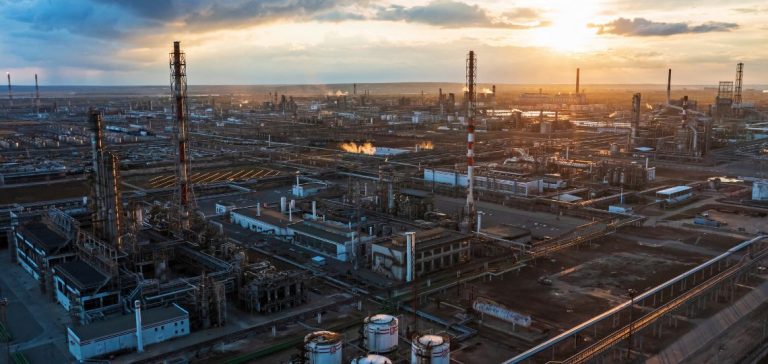The Saudi Ministry of Finance foresees a growing budget deficit in the coming years. While the 2025 budget is expected to show a deficit of 2.3% of GDP, this figure could reach 3% by 2027. These projections are concerning for the kingdom, which remains the world’s top oil exporter. The drop in oil revenues is directly linked to the country’s production cuts since 2022. Currently, daily crude oil production is limited to around nine million barrels per day (bpd), compared to a declared capacity of 12 million bpd.
The decision to reduce supply aims to stabilize oil prices in global markets but has a direct impact on state revenues. In 2025, revenues are expected to fall by 4.3%, reaching 1.184 trillion riyals ($315 billion), while public spending is projected to increase to 1.285 trillion riyals ($342.6 billion). This creates a budgetary dilemma for the government as it seeks to finance large-scale projects to reduce its dependence on hydrocarbons.
Aramco and Declining Profits
The effects of this reduced production strategy are evident in the financial results of the national oil company, Aramco. The company reported a 14.5% year-on-year decline in profits in the first quarter of 2024, followed by a further 3.4% decrease in the second quarter. This decline is attributed to lower production volumes and shrinking profit margins in a complex market environment marked by price volatility.
The challenge for Saudi Arabia lies in balancing support for oil prices with the need to generate sufficient revenue to finance its diversification projects. The reliance on hydrocarbons remains strong, despite ongoing efforts to strengthen other economic sectors. While non-oil development initiatives are promising, they require substantial funding.
Diversification Projects and Economic Strategy
Under the leadership of Crown Prince Mohammed bin Salman, Saudi Arabia is intensifying its efforts to transform its economic model. The **Vision 2030** program, launched in 2016, aims to diversify revenue sources and reduce reliance on oil exports. The kingdom is making massive investments in tourism infrastructure, special economic zones, and industrial projects. NEOM, a futuristic mega-city being constructed in the desert, and initiatives in the entertainment and renewable energy sectors are the most visible examples of these ambitions.
These projects require significant spending, which puts pressure on the national budget. The government is planning an increase in public spending in the short term to stimulate these strategic sectors. In 2024, real GDP growth is expected to be 0.8%, primarily driven by a 3.7% rise in non-oil activities. However, this growth remains modest compared to expectations, highlighting the structural challenges the country faces in restructuring its economy.
Risks and Long-term Prospects
In the medium term, Saudi Arabia’s fiscal trajectory will depend on its ability to attract foreign investments to support its projects. Economic diversification is essential but relies on optimistic growth assumptions in a globally uncertain environment. Oil price volatility and geopolitical tensions in the Middle East could hinder these ambitions.
Furthermore, increasing public spending while revenues are decreasing raises questions about the financial sustainability of the current economic model. Fiscal flexibility could diminish, especially if diversification projects do not generate sufficient revenue quickly. Prudent public finance management will be crucial to avoid excessive debt growth and to preserve the country’s macroeconomic stability.
Saudi Arabia navigates the challenges of a growing budget deficit and the opportunities offered by ambitious economic diversification. Transitioning to a less oil-dependent economy is essential for the kingdom’s financial stability and future prosperity.






















